Two weeks ago, the National Marine Fisheries Service release a new Biological Opinion on the ecological challenges of salmon populations in the Pacific, including the California Bay-Delta (Sacramento-San Joaquin). EDF Senior Scientist, Rod Fujita comments on NMFS Biological Opinion and how the efforts of the Bay-Delta Conservation Plan must equally match those of NMFS.
Monthly Archives: June 2009
Saving Fishing Jobs and Sea Turtles
 Gulf of Mexico fisheries regulators recently closed down longline fishing (7-9 mile fishing lines with hundreds of hooks) in the Gulf of Mexico off west Florida for six months because the government reported that more threatened sea turtles were being caught than expected. The result of the closure is that turtles will be saved, but jobs will be lost.
Gulf of Mexico fisheries regulators recently closed down longline fishing (7-9 mile fishing lines with hundreds of hooks) in the Gulf of Mexico off west Florida for six months because the government reported that more threatened sea turtles were being caught than expected. The result of the closure is that turtles will be saved, but jobs will be lost.
On top of this six month closure, the Gulf Council will make a decision later this week on additional measures the longline fishermen will have to take to avoid interacting with sea turtles. Again, the good news is that turtles will be saved and the bad news is that jobs will be lost.
 In the midst of all this, our very own Dave McKinney came up with a solution to save turtles and jobs. We’ve started a grant program that provides financial assistance to longline fishermen who convert to vertical gear, which causes far fewer turtle interactions. We have already received almost 30 applications and the new gear has already been put on more than five vessels.
In the midst of all this, our very own Dave McKinney came up with a solution to save turtles and jobs. We’ve started a grant program that provides financial assistance to longline fishermen who convert to vertical gear, which causes far fewer turtle interactions. We have already received almost 30 applications and the new gear has already been put on more than five vessels.
As a result, turtles are safer, fishermen have jobs and we’re thrilled because financially stable fisheries are important for achieving our conservation goals. Florida’s U.S. Senator Bill Nelson and the National Oceanic and Atmospheric Administration have agreed and have given us kudos for finding the ways that work.
EDF Scientist Participates in Planning UN Report on Biodiversity
Jake Kritzer is a Senior Scientist for EDF’s Oceans program.
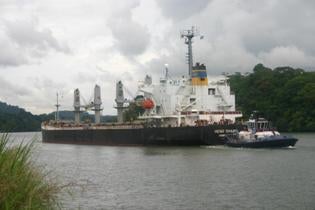 In anticipation of the International Year of Biodiversity in 2010, the United Nations Development Program (UNDP) is preparing a major report on the role of biodiversity and ecosystem services in sustaining natural resource-based industries in Latin American and the Caribbean.
In anticipation of the International Year of Biodiversity in 2010, the United Nations Development Program (UNDP) is preparing a major report on the role of biodiversity and ecosystem services in sustaining natural resource-based industries in Latin American and the Caribbean.
The report will have an economic focus and speak to policymakers, highlighting how a shift from “business as usual” management practices that fail to value and protect biodiversity and ecosystem services ultimately lead to higher costs, declines in long-term employment opportunities, and poorer overall economic performance. Economic sectors to be covered include agriculture, forestry, tourism and, of course, fisheries.
UNDP recruited EDF to help with the fisheries chapter in the report. So, I traveled to the small rainforest town of Gamboa in Panama’s Canal Zone to meet with experts from across Latin America and around the world to plan the report. The setting was somewhat surreal, given that we were surrounded by thick, lush jungle, with an array of colorful tropical birds darting about, and the occasional herd of capybara (the world’s largest rodent) wandering into clearing to graze. All of this while with massive cargo ship slowly traversing the Canal while pushed by powerful tugs.
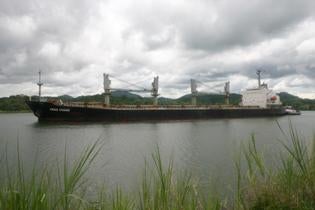 The workshop participants were very interested in hearing about the potential for catch shares to achieve sustainable harvest levels of fish stocks, reduce bycatch and habitat impacts, and create a community of fishermen-stewards who will advocate for habitat protection, improvement of water quality, and other needed ecosystem-based management practices.
The workshop participants were very interested in hearing about the potential for catch shares to achieve sustainable harvest levels of fish stocks, reduce bycatch and habitat impacts, and create a community of fishermen-stewards who will advocate for habitat protection, improvement of water quality, and other needed ecosystem-based management practices.
Latin America presents many fisheries management challenges, for fisheries in the region are not only an important source of employment in many countries, but also a major source of protein, particularly in small coastal subsistence fishing communities. Fortunately, the region can look to several successful examples of catch shares management, including both the large ITQ-managed fisheries in Chile and the smaller coastal fisheries managed by “cooperativas” (cooperatives) or territorial use rights (TURFs) in Mexico, Uruguay and other countries.
As EDF looks to expand upon its existing Latin American efforts in Mexico, Belize and Cuba, this new partnership with UNDP, guided by the course charted in this report, will open exciting new possibilities.
Canadian Fishermen Visit New England Counterparts
I love introducing fishermen to each other because they always have lots to talk about. Last week, EDF brought fishermen from British Columbia to six New England fishing communities. More than 100 fishermen from Massachusetts, Maine and Rhode Island attended the meetings, 35 people showed up in New Bedford, MA alone. The BC fishermen also met with 30 fishery managers.
The meetings focused on how catch shares work in B.C. New England fishermen are intensely interested in what’s going on in BC because the fisheries in New England are likely moving to catch shares in the near future. Becky Evans from the New Bedford Standard Times wrote an excellent story on the visits.
EDF has been brining fishermen together for years. We’ve arranged for fishermen to come to BC several times a year because we’ve found that fishermen are the best spokespeople for better fishing management. In fact, EDF brought fishermen from Belize to BC earlier this year.
Selecting Sustainable Seafood: The Challenge for Consumers
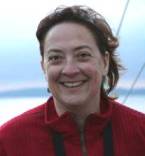 Making sustainable seafood choices at the fish counter and at restaurants are daunting tasks for most people, even for experts such as New York Times food writer and cookbook author Mark Bittman. In his recent article, Bittman acknowledges the challenge of being a seafood consumer interested in both taste and environmental ethics.
Making sustainable seafood choices at the fish counter and at restaurants are daunting tasks for most people, even for experts such as New York Times food writer and cookbook author Mark Bittman. In his recent article, Bittman acknowledges the challenge of being a seafood consumer interested in both taste and environmental ethics.
“The buying has become a logistical and ethical nightmare,” Bittman states.
I’m glad that Bittman refuses to give up either eating fish or factoring sustainability into what he buys. He tries to keep his selection of sustainable seafood simple with a few rules of thumb focused on staying away from the most troubled fish stocks.
When we all demand sustainable seafood, I think it will help support some of the tough decisions that need to be made to get the oceans healthy again. Scientists tell us that the two best solutions are protecting the sensitive places in the ocean and managing the fish we catch properly through catch shares fishery management.
It is absolutely amazing that all the fisheries in the world are either fully fished at capacity or have been fished to collapse. Yet strong evidence published in the journals Science and Nature show that catch shares end, prevent and even reverse the collapse of fisheries. In addition to ending overfishing and rebuilding fish stocks, well designed catch shares provide economic stability for fishermen and fishing communities.
Fortunately for the environment, fishermen and consumers alike, support for catch shares management continues to gain momentum and is being considered in all coastal regions of the country. The new NOAA administrator Dr. Jane Lubchenco is demonstrating unprecedented support for studying, implementing, and funding catch shares management. Just yesterday the House of Representatives appropriations committee included a big increase in the budget to make catch shares happen.
With continued support from fishermen and even consumers, this momentum and support for catch shares can lead to a new era for fisheries management that protects our oceans and make eating seafood all the more enjoyable.
A Lesson in Catch Shares Cooperation
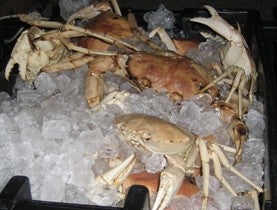 For the past 10 years Doug Rader has worked with golden crab fishermen to protect deepwater corals off the South Atlantic coast. Between formal Fishery Council meetings and hallway conversations, a compromise of allowable fishing zones will keep golden crab fishermen fishing and deepwater corals out of harms way.
For the past 10 years Doug Rader has worked with golden crab fishermen to protect deepwater corals off the South Atlantic coast. Between formal Fishery Council meetings and hallway conversations, a compromise of allowable fishing zones will keep golden crab fishermen fishing and deepwater corals out of harms way.
The golden crab industry has a history of being advocates for strong management. In 1995 it was the golden crab fishermen that petitioned for a fishery management plan and a limited entry fishery. Now with the deepwater protections on the verge of being adopted, many in the golden crab industry are looking to catch shares management as the next step for maintaining a healthy fishery.
Enter EDF staffers Eileen Dougherty (me) and Sarah Hagedorn. Starting about eight months ago, Sarah and I answered golden crab fishermen’s call to be educated on catch shares. Through many exchanges of information, Sarah and I learned about the fishery and fishermen learned about catch shares management. I helped fishermen understand how catch shares work and are designed and Sarah worked with the fishermen on the science behind catch shares and on defining an appropriate annual catch limit for golden crab.
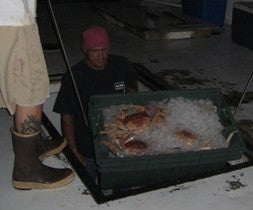 What are the results of all this cooperation? The South Atlantic Fishery Management Council heard fishermen’s request to develop a golden crab catch shares program and are tasking the industry with taking the first crack at the design. Golden crab fishermen in return are looking to develop a collaborative process by which they can work together, with us, and Kate Quigley, the South Atlantic Council staff economist to craft a catch shares program that will meet their needs and continue the legacy of conservation and stewardship they’ve established. I look forward to continuing our work with the golden crab industry and am glad I’ve played a part in this lesson of catch shares cooperation.
What are the results of all this cooperation? The South Atlantic Fishery Management Council heard fishermen’s request to develop a golden crab catch shares program and are tasking the industry with taking the first crack at the design. Golden crab fishermen in return are looking to develop a collaborative process by which they can work together, with us, and Kate Quigley, the South Atlantic Council staff economist to craft a catch shares program that will meet their needs and continue the legacy of conservation and stewardship they’ve established. I look forward to continuing our work with the golden crab industry and am glad I’ve played a part in this lesson of catch shares cooperation.









